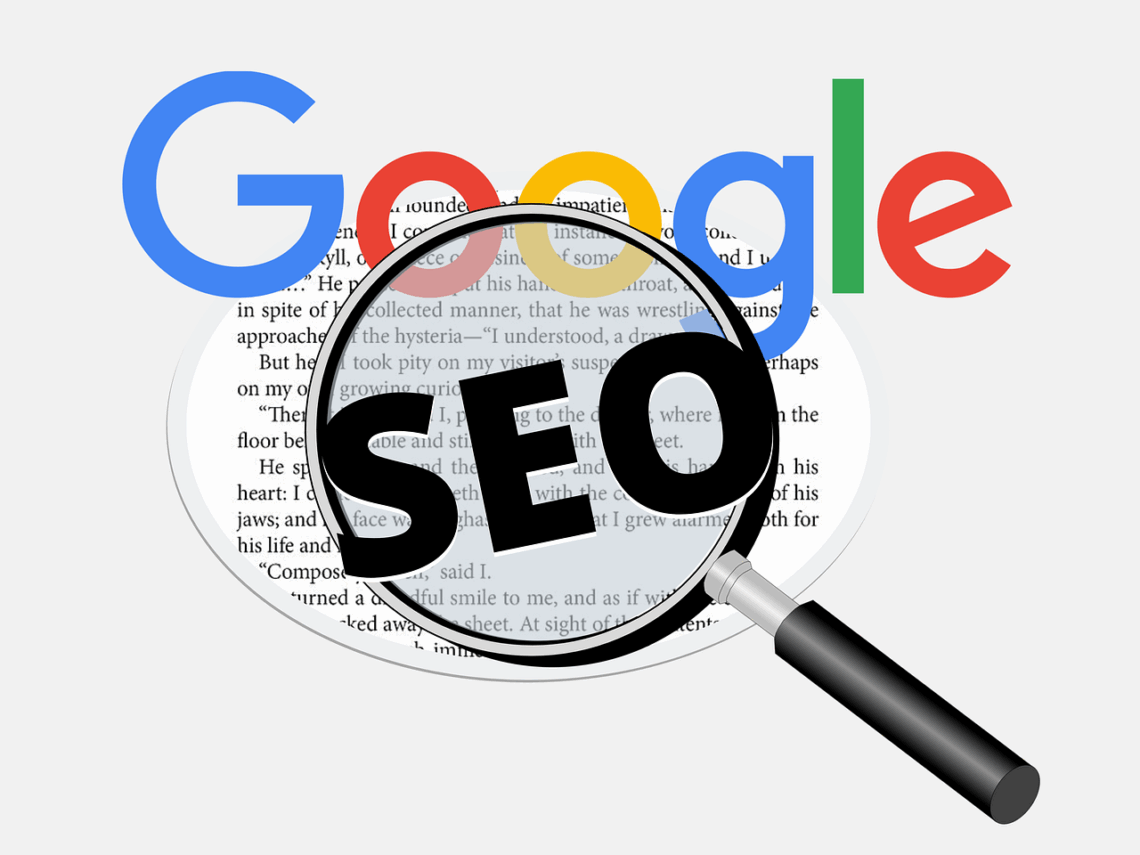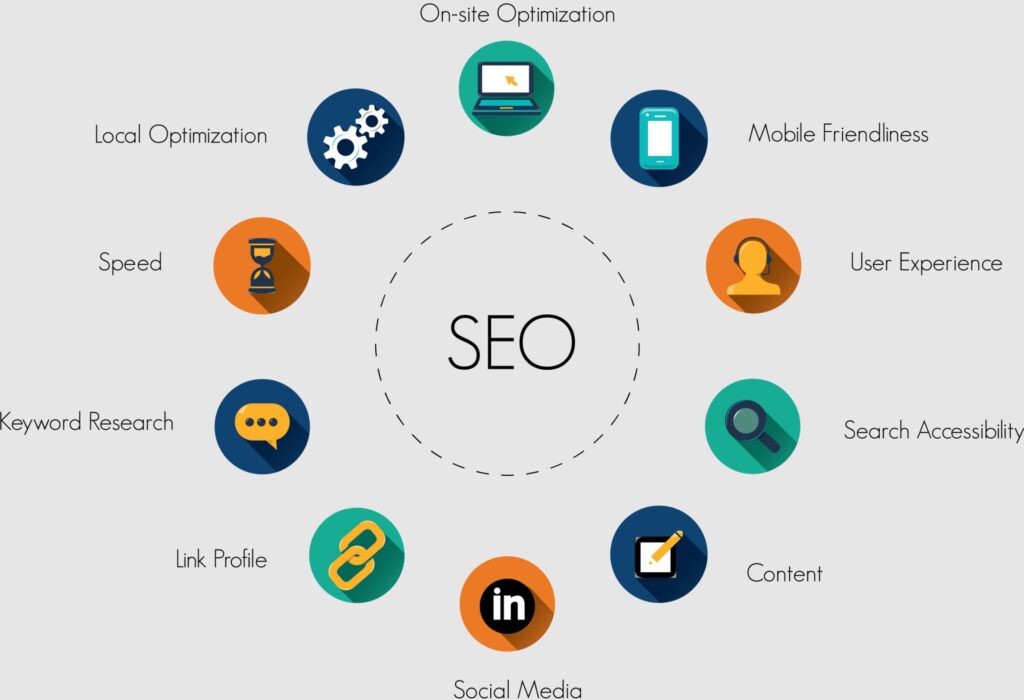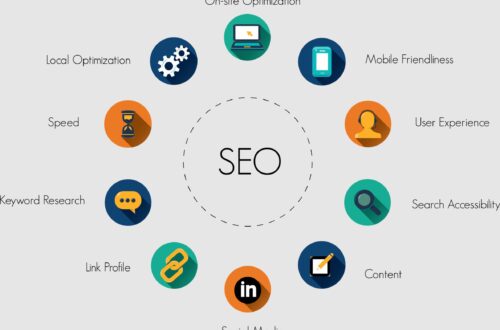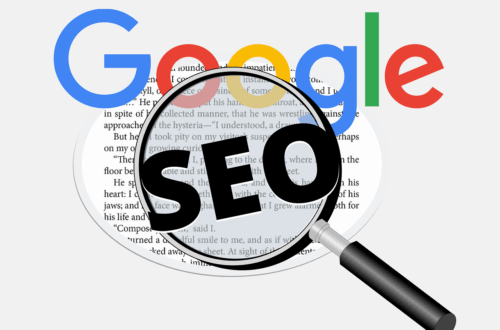
SEO and EEAT: What Every Professional Needs to Know
Search engine optimization (SEO) has always been at the forefront of digital marketing strategies, but as Google’s algorithms grow more sophisticated, it’s becoming clear that SEO is no longer just about keywords and backlinks. In 2025, the concept of EEAT (Experience, Expertise, Authoritativeness, and Trustworthiness) has emerged as a pivotal factor in determining a website’s credibility and ranking. As Google shifts towards evaluating content quality and user trust, it’s crucial for SEO professionals to understand how EEAT directly influences SEO performance.
This article delves into the importance of EEAT for SEO in 2025, how it complements both on-page and off-page SEO strategies, and how you can implement it to boost your site’s rankings. We’ll explore practical strategies to enhance your website’s EEAT, common pitfalls to avoid, and the techniques that are still effective in today’s SEO landscape.
What is EEAT and Why Does It Matter for SEO?
In 2025, EEAT has become an integral part of SEO. Google introduced this concept as part of its effort to ensure that users are presented with the most reliable, accurate, and helpful content. While the term has been around for some time, its importance in SEO has intensified in recent years. Here’s a breakdown of EEAT:
Experience
Experience refers to the real-world knowledge and firsthand expertise that content creators bring to their material. This is particularly important for industries such as health, finance, and legal, where users need to trust the information they receive.
Expertise
Expertise indicates that the content is created by someone who has proven knowledge in the subject matter. For example, a medical blog written by a licensed doctor carries more weight than one written by a general blogger.
Authoritativeness
Authoritativeness means that a website is recognized as a leader in its field. Websites with authoritative backlinks, a history of valuable content, and industry recognition are often seen as more credible by search engines.
Trustworthiness
Trustworthiness ensures that a website can be relied upon. This includes factors like secure browsing (HTTPS), user reviews, accurate information, and privacy policies. Google prioritizes trustworthy websites to ensure users don’t fall victim to misinformation or security risks.
How EEAT Affects Your SEO Strategy
Google’s ranking algorithms now consider EEAT signals when determining how well a website should rank in search results. In practical terms, EEAT has a significant impact on both on-page and off-page SEO strategies, influencing factors like content quality, backlinks, and site authority.
1. On-Page SEO and EEAT
On-page SEO refers to everything on your website that can be optimized to improve rankings. For EEAT, on-page elements need to reflect authority, trust, and expertise.
Content Quality and Relevance
The quality of your content is the most significant driver of EEAT. In 2025, content that is comprehensive, accurate, and written by experts is more likely to rank highly. Content should provide value to users by answering their queries with authoritative information.
- EAT-driven content: Make sure that your content demonstrates your expertise, such as providing data, case studies, or insights from authoritative sources.
- Comprehensive guides: Long-form content, such as in-depth guides and tutorials, signals authority and expertise. It shows that your website is an authoritative resource for the topic.
Clear Author Information
Google values transparency. Displaying clear author credentials can significantly impact your EEAT score. If you are in a sensitive industry like healthcare or law, showing qualifications and certifications can boost credibility.
- Author Bio: Include a detailed bio for each article, listing the author’s qualifications and expertise.
- About Us Page: Clearly explain who is behind your website and the qualifications of your content creators.
2. Off-Page SEO and EEAT
Off-page SEO refers to factors that occur outside of your website but still influence its rankings, such as backlinks, social media presence, and online reviews. Off-page elements play a huge role in signaling trustworthiness and authority.

Backlink Quality and Relevance
Backlinks from authoritative and trustworthy websites directly contribute to your website’s EEAT score. Google evaluates the quality, relevance, and trustworthiness of the sites linking back to you.
- Earned Backlinks: Focus on acquiring backlinks from trusted sources in your industry. Guest posts, collaborations, and authoritative content that others want to link to are great ways to improve your backlink profile.
- Quality Over Quantity: It’s not about the number of backlinks but the relevance and quality of the linking websites. A single backlink from an authoritative site can be more beneficial than hundreds from low-quality sources.
Social Proof and Reviews
Customer reviews and social media mentions are powerful trust signals. Google pays attention to user-generated content, like reviews and social media posts, which affect your reputation and perceived trustworthiness.
- Encourage Reviews: Ask satisfied customers to leave positive reviews on your site and third-party platforms like Google My Business or Trustpilot.
- Social Media Engagement: Actively engage with your audience on social media. Positive mentions and shares can increase your site’s authority and drive traffic.
3. Mobile-First Indexing and EEAT
As mobile-first indexing becomes the norm, ensuring your site provides a seamless mobile experience is essential for both UX and SEO. Google uses the mobile version of your website for ranking and indexing, so optimizing your mobile site is crucial for improving your EEAT signals.
- Responsive Design: Ensure that your website adjusts to different screen sizes and offers a smooth user experience on all devices.
- Fast Load Times: Google rewards fast-loading websites. Compress images, reduce JavaScript, and implement other techniques to speed up your mobile site.
4. User Experience (UX) and Trustworthiness
Google has increasingly incorporated UX as a ranking factor, which is closely related to EEAT. A website that offers a smooth, intuitive experience builds trust and authority with users.
- Intuitive Navigation: Your website should be easy to navigate, with clear menus, helpful categories, and a logical flow of content.
- Secure Website: Google gives preference to HTTPS sites, as they are more secure for users. If your website is not using HTTPS, it could impact both your rankings and your trustworthiness in the eyes of visitors.
Outdated SEO Techniques to Avoid in 2025
As SEO evolves, some outdated practices no longer hold weight or even harm your rankings. Here are some techniques to avoid in the age of EEAT:
- Keyword Stuffing: Overuse of keywords in an unnatural manner can harm content readability and user experience.
- Low-Quality Backlinks: Acquiring backlinks from irrelevant or spammy sites can lead to penalties from Google.
- Duplicate Content: Google prioritizes original, unique content. Duplicate content can confuse search engines and harm your rankings.
How to Improve EEAT for Better SEO
Improving your EEAT signals can significantly boost your SEO performance. Here are some practical strategies to consider:
- Create High-Quality Content: Focus on creating content that is both authoritative and valuable. It should answer user queries, provide expert insights, and be regularly updated.
- Showcase Author Expertise: Display author bios and credentials to establish authority. If possible, have content reviewed by industry experts.
- Earn High-Quality Backlinks: Build backlinks from reputable, relevant sites in your niche. Avoid link schemes and low-quality backlinks.
- Improve Site Security: Ensure your website is HTTPS-secure to build trust with users and improve your rankings.
- Engage with Users: Encourage reviews, address customer feedback, and actively participate in relevant online communities to build trust.
Summary and Actionable Checklist
In 2025, SEO is no longer just about optimizing for search engines—it’s about providing value and earning the trust of both users and search engines. The concept of EEAT plays a vital role in this, as Google increasingly focuses on content quality, authority, and trustworthiness. Here’s an actionable checklist to improve your EEAT and SEO performance:
Actionable SEO Checklist:
- Create high-quality, expert-driven content that answers user questions and provides value.
- Include author bios and credentials to showcase expertise and authority.
- Earn backlinks from trusted, relevant sources to improve domain authority.
- Ensure your website is HTTPS-secure to build trust and improve rankings.
- Engage with your audience through reviews, social media, and content interactions.
By prioritizing EEAT, you’ll not only improve your SEO rankings but also build a trustworthy and authoritative online presence.
Meta Description (150-160 words):
Learn how EEAT (Experience, Expertise, Authoritativeness, and Trustworthiness) impacts SEO in 2025 and why it’s essential for ranking success. Discover strategies to improve your website’s EEAT, including creating high-quality content, earning authoritative backlinks, showcasing author expertise, and enhancing user trust. This guide covers practical tips for boosting SEO performance, avoiding outdated techniques like keyword stuffing, and focusing on content optimization and user experience. Perfect for SEO professionals, marketers, and content creators looking to improve their site’s credibility and visibility.
releated:Evaluating the Success of Your SEO Campaign with an Agency: Metrics that Matter


